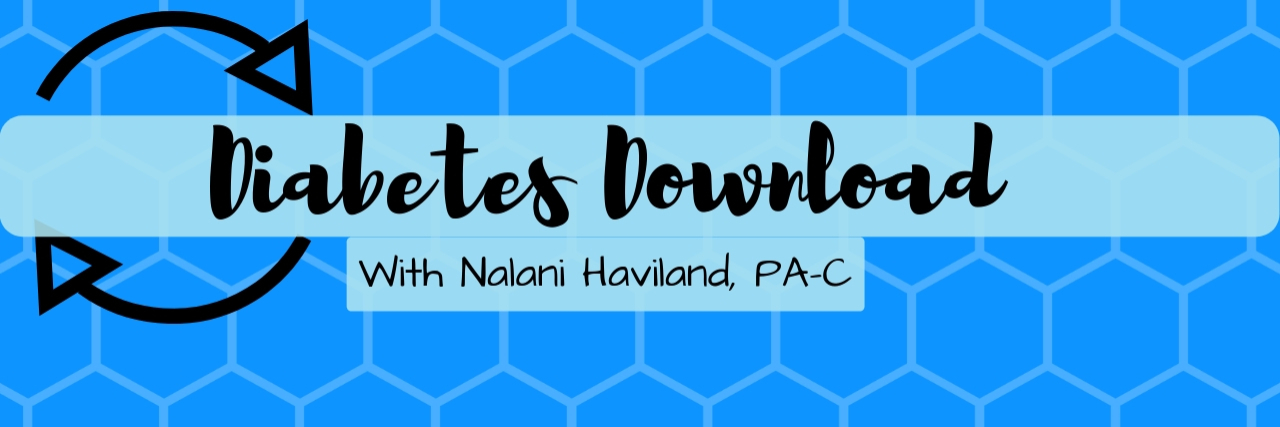Diabetes Download: How Do I Deal With the Mental Drain of Diabetes?
In Diabetes Download, Nalani Haviland, a board-certified physician assistant and diabetes expert who has type 1 diabetes herself, answers the Mighty community’s questions.
Editor's Note
Living with diabetes can be tough on your mental health. Here, Nalani Haviland, PA-C, explains the best ways to cope with the stress of diabetes.
This column is solely for general education and information. It is not intended to provide any medical advice and cannot replace or be a substitute for your relationship with your healthcare provider. Always talk to your clinician for any issues or questions.
The Mighty community asked: “How do I deal with the mental drain of diabetes?”
Diabetes is such a mentally burdensome disease. A lot of times we focus on our numbers: blood glucose levels, HbA1c’s, insulin amount, amount of weight lost or gained. But we all know our successes and failures in diabetes management can’t simply be reduced to numbers. Sometimes my diabetes makes me so tired. This whole month has been a roller coaster. I’ve been sick on and off and thus have had a terrible time with my control. I have a lot of support, and am truly grateful, but sometimes I wish that people could actually see my disease. Then they would understand why I’m so tired all the time, or why I might be grumpy. I work really hard at my diabetes. Does my month of imperfect control or the fact that my blood glucose is currently 200 mg/dl make me a “failure” or a “bad diabetic?” Of course not! But it does take its mental toll.
My point is, it’s easy for us PWD to beat ourselves up, and honestly, I need to kick my own ass back into shape sometimes. But it’s important to find a way to stay mentally healthy through the fight and practice self-love. It’s still a work in progress for me, and I’m constantly working on my mental narrative, but my conscious effort to do so is helping!
I’ve also been working on my physical practice of self-love. I have found that I am most at peace when I am exercising or playing with my nephew. I try to make it a point to do these things as often as possible because when I do, I can feel the anxiety and self-deprecating talk melt away. I urge all of you to find the things that make you feel most at peace, and do them daily.
Self-love is so important and I firmly believe that my mental and physical health are directly related. Don’t forget to love yourself and acknowledge your successes!

Glossary of Terms
Type 1 Diabetes: A chronic condition that occurs when the pancreas produces little to no insulin. As a result, the body is unable to properly process glucose for energy. It is primarily managed with frequent blood glucose monitoring, diet, exercise, and either insulin pump therapy or multiple daily injections.
Type 2 Diabetes: A chronic condition resulting from insulin resistance and/or an inadequate response to insulin secretion. This results in the body’s inability to properly process glucose. It is managed with frequent blood glucose monitoring, oral or injectable medications, diet, exercise, and sometimes insulin.
Blood Glucose: Another name for blood sugar. Having blood glucose levels that are too high or too low is the hallmark sign of diabetes.
Insulin: A hormone produced by the pancreas. Insulin allows for the regulation of blood glucose and without it, the body cannot process glucose for energy. People with diabetes must get their insulin either through injection or insulin pump therapy.
Diabetic Ketoacidosis (DKA): A complication of uncontrolled diabetes caused by an insufficient amount of circulating insulin. This usually leads to high blood glucose levels and a buildup of blood ketones, byproducts of the breakdown of fatty acids. Untreated diabetic ketoacidosis can lead to coma and death.
PWD: Person with diabetes
Basal Insulin: Also called “background insulin.” In people without type 1 diabetes, the pancreas supplies consistent basal insulin to maintain blood glucose levels between meals. People with type 1 diabetes must inject long-acting insulin to maintain correct blood glucose levels.
Bolus Insulin: Insulin made by the pancreas in response to glucose consumed in food. People with type 1 diabetes must inject rapid-acting insulin immediately before a meal to maintain correct blood glucose levels.
Follow me on Instagram at @diabetes_pa, on YouTube, and on my website.

